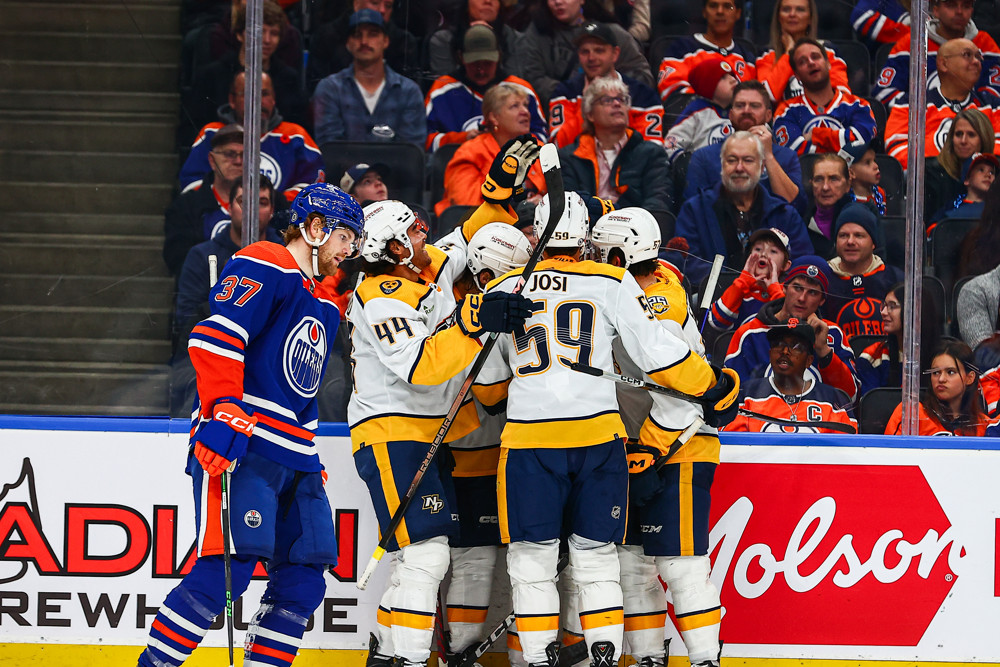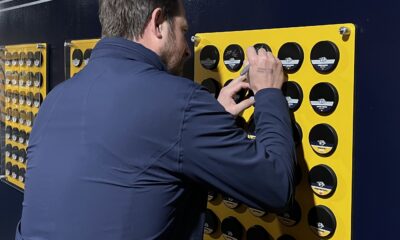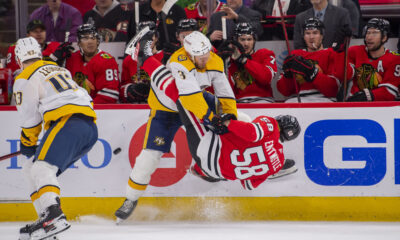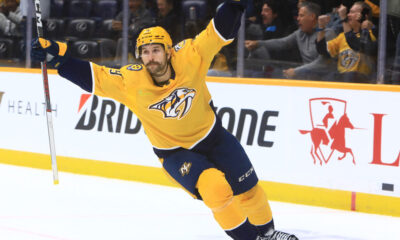If you only looked at their win loss record, you might think it was status quo with the Nashville Predators.
On the surface, seeing some of their lopsided losses, seeing their current position in the Central (6th), and seeing the still chasmic talent gap between them and the top teams NHL, you’d probably assume it was “same old, same old” with the Preds.
But everyone who has actually watched Nashville’s first 11 games has a similar takeaway.
“This team is a lot more fun to watch.”
“This team may not be great, but they play different.”
“There’s more energy and I like that.”
These paraphrased sound bites are just a few examples of what I’ve heard people say to me about the Preds this year. It’s people trying to grasp at what feels different about this team.
The 5-6 record suggests nothing is different, that the team will miss the playoffs for the 2nd consecutive season. But in most fans’ experience, and in mine as an objective observer, watching the team is a very different experience from years past.
Here’s my attempt at explaining what people might be experiencing.
More offense = more fun
First, there’s been an uptick in offense.
Through 11 games, they’ve scored 2.91 goals per game, which is just above their 2.72 goals per game last year.
Ok, so it’s not a lot more. Maybe not even that noticeable.
But there’s more going on below the surface.
The real difference is in Nashville’s underlying tactics that are creating this offense. Andrew Brunette’s new system appears to have made a huge impact in how the team attacks the offensive zone.
Speed through the neutral zone, more skating into and out of the zone (not just dumping the puck), and a higher emphasis on shot volume, rather than cycling for the perfect shot every time, has pushed Nashville’s offense into gear. They currently rank 11th in the NHL in expected goals for per hour (xGF/60) according to Natural Stat Trick, and according to this chart from Hockey Viz, they have enough balance at both ends to consider them a “good” team.
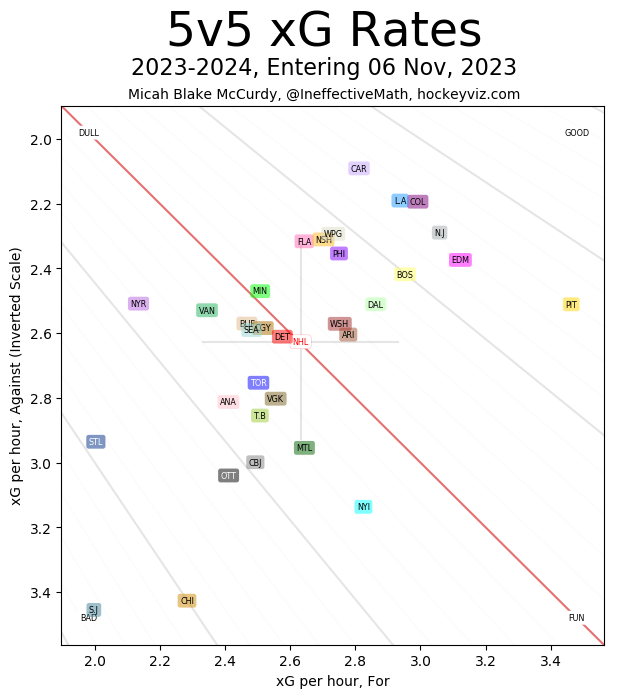
I realize that “puck luck” is not something most fans want to hear about. It’s been a talking point ad nauseam from the team over the years.
But right now Nashville is shooting only 6.69% at 5v5, which ranks 24th in the NHL. If that number ticks up a few points, those expected goals become actual goals, and the offense improves even more.
Filip Forsberg is a prime example. His 4.4 shooting percentage through 11 games? Yeah, that’s going to improve. His shooting will undoubtedly climb closer to his 12% career average.
More offense leads to more goals which leads to a better fan experience watching the games.
Power plays are no longer frustrating
When was the last time the Nashville Predators’ power play carried the team? Probably never.
Every Preds fan knows the feeling of dread watching the power play saunter out for another two minutes. How bad will this one look? Will they get a shot on goal? Can they at least not give up a shorthanded goal?
But this year, that feeling is gone. Succeeding at a 23.4% rate, this power play feels downright lethal.
Part of the change has been strategic. Roman Josi is no longer the “quarterback” of the unit, instead playing a “rover” or “roaming” attacker that allows him to use his skating ability more. Tyson Barrie is a much more natural choice as the quarterback, plus he doesn’t have quite the hair trigger when it comes to shooting that Josi does.
Ryan O’Reilly, who has been a godsend to the Preds in more ways than one, plays the bumper role well, though he’s not confined to the slot area. Luke Evangelista, Tommy Novak, and Filip Forsberg have all been excellent shooters on the power play.
In years past, the Nashville Predators’ power play has been a source of immense frustration for fans. The unit has been incapable of capitalizing on big moments, and more often than not they’ve handed momentum to their opponents following their inevitable bout of ineptitude.
But this year? That unit feels different.
Eschewing familiarity, embracing change
Looking at the bigger picture for a second, the offseason roster turnover has to affect how fans in general feel about the team.
Casting off Ryan Johansen and Matt Duchene, then signing Ryan O’Reilly, Gustav Nyquist, and Luke Schenn, allowed fans to cleanse their palette. Plenty has been said about those changes from a roster construction standpoint, some of which you can read here, but I will add this observation: it says a lot about Barry Trotz’s actions that after watching this team for about 4 months last year, he decided to send those two players packing and then bring in guys like Ryan O’Reilly.
Embracing change means not only moving on from the past, but resetting the current mindset. To that end, Trotz has confidently embraced change.
Incidentally, he’s also stepped outside the franchise’s comfort zone. Bringing in a brand new head coach, one with an evolved mindset on how to coach in the NHL. Using the league’s waiver system to find “free draft picks.” Spending over $10 million in team facility upgrades, including a new sophisticated video system that can better allow the team to evaluate its performances.
All these are tools Trotz has used to refurbish the franchise. He’s rebuilding a mindset, not just a team, and his seal of approval on decisions is becoming more and more trusted every day.
In my conversation with Trotz a couple weeks ago, he gave me an anecdote about some friends he had visiting from out of town. The Predators had just beaten the San Jose Sharks at home, but, as he pointed out, his friends all said “I like the way you’re playing” instead of “nice win.”
His “process” is leading to a tangible result on the ice, and that result on the ice will almost certainly lead to more wins in the standings.
The pressure is off
Ask yourself this question: if this Nashville Predators team didn’t make the playoffs, would you really be heartbroken?
Every fan loves playoff hockey, but if this team didn’t make it, most probably wouldn’t be surprised.
The expectation level has been reset. The requirements for a “successful season” have been overhauled.
Barry Trotz has a lot to do with that, but so does David Poile.
When David Poile decided to (finally) step down, it signaled a call for a larger change in the organizational philosophy. No longer did everything need the David Poile seal of approval. No longer did the one man in charge of the team’s roster have to decide everything.
For the first time ever, the team has a different set of eyes looking at the way this team is built.
It may not be at the forefront of their minds when entering the building, but I think fans understand this. Casual fans, well, they don’t really care. They are there for the experience.
But the diehards? They understand the organizational environment has changed. And it makes everything a little more palatable, knowing that change is not only coming, it’s here now.
It’s what makes sitting in the stands watching the Edmonton Oilers run roughshod over the team a little more endurable.
Because there’s a new guy watching from his box up above. A familiar face, but a discerning one.
And he’s willing to do what it takes to turn this franchise into a winning one.
— Featured image via Curtis Comeau/Icon Sportswire —

